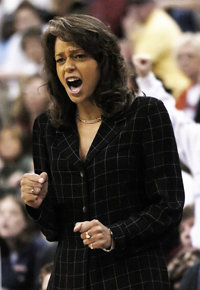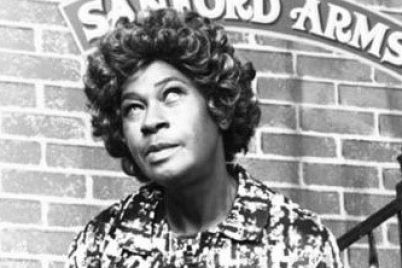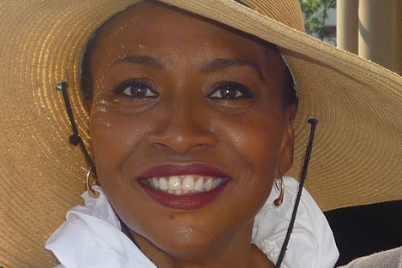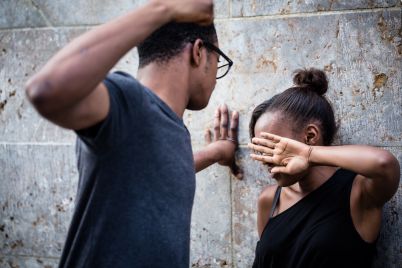Carolyn Arlene Peck was the head coach for the women’s basketball teams of Purdue University and the University of Florida and also the first head coach-general manager in the history of the WNBA’s Orlando Miracle. [Photo: Markus Spiske]
BY KEISHA BELL | Visionary Brief
There is truth in the adage, “Someone is always watching (you).” People watch, however, for different reasons. Sometimes, those reasons promote progress to be celebrated by both past and future generations.
Meet Carolyn Arlene Peck, a television sportscaster and an assistant coach for the Vanderbilt women’s basketball program. In 1999, Peck became the first African American to coach a women’s Division I basketball national championship team when she coached Perdue University’s team to victory.That year, she also became the first woman and the first African American to win the Winged Foot Award, an award that honors the best coach in college basketball. Then, at age 33, Peck remains the youngest person to coach a women’s Division I basketball national championship team.
Born January 22, 1966, Peck was named Tennessee’s Miss Basketball in 1984. Having continued her basketball career at Vanderbilt University in 1988, she graduated from there with a Bachelor of Arts degree in communications. After a short stint away from the sport, Peck returned as a professional player in 1991 and then as an assistant coach in 1993.
Despite Peck’s numerous awards and accomplishments, things have not always gone smoothly. During a discussion with four other coaches on The Players’ Tribune media outlet, Peck admitted to getting fired as the head coach of the University of Florida’s women’s basketball team after winning a national title at Perdue.
“Let’s talk about second chances and opportunities,” Peck said, “do those happen as much for us as they do for people who are not black — not black women?” This is a real question, one that extends past women’s basketball.
As an ESPN sportscaster, Peck is paid to watch, analyze, and give commentary on women’s basketball games. In doing so and in knowing what it takes to win the championship game, she scouted teams — meaning both players and coaches. Peck watches people for the fans, but she people-watches for progress.
In Dawn Staley, coach of the University of South Carolina women’s basketball team, Peck found what she was looking for–a passage. Staley provides some background information during the coaches’ discussion, “…when Carolyn was on ESPN, and she would cover our games, and it was two years before we won the National Championship, she would do our games and she gave me a piece of her net from when she won the championship in ‘99. …a lot of people don’t understand because when you’re close, you know, although you can be very confident, there is always a little doubt that seeps in that keeps you fired up and keeps you on your toes. But when she gave me the piece of her net and she told me that, ‘When you win it–you’re close.’ She’s like, ‘You’re close— when you win it, I want you to return this back to me and I want you to do the same for someone else… I didn’t doubt after that.’”
It seems like a small gesture, but Peck’s act and its symbol erased all doubt. Staley went forth unafraid and became the second African American to coach a women’s Division I basketball national championship team when she coached the University of South Carolina team to victory in 2017.
“Let me tell you where it started for me,” said Peck, “because I went to Kentucky. I’d left Tennessee and…the next year, ‘96, Tennessee won. And so, I was there watching the game, and Pashen Thompson was a post player. And so while they’re down there cutting down nets, she looked up and found me in the stands and goes, ‘You come down here.” And so I came down there, and when she climbed the… ladder, I watched her, and she cut two pieces. And when she came down, she gave me one, and she said, ‘Coach Peck, I want you to keep this until you win one of your own.’ So when I went to Purdue, even as an assistant, I tied that piece of net to my shoe, and I wore it every day. If I changed shoes, I put that raggedy net on my shoe every day to San Jose.”

Keisha Bell
Let’s talk about second chances and opportunities. Now, that is progress to be celebrated by both past and future generations.
Keisha Bell is an Attorney, author, and public servant.









